
Vladimir Benes
EMBL Heidelberg
Germany
EMBO Practical Course
The course focuses on the highly interdisciplinary topic of metagenomics. During the course, participants will receive an overview of state-of-the-art genomic technologies and bioinformatic tools. A balanced approach of lectures and practical sessions will provide a general background and the latest advancements in the field as well as its relationship with other disciplines.
The course will start with training the participants about experimental design and the preparation of their own metagenomic libraries with soil or their (environmental) samples. The metagenomic DNA will be sequenced onsite using third generation sequencing technologies and subsequent data analysis. Thus, the students have a unique opportunity to work on the complete workflow from sample preparation to data analysis. This updated course version will also address cutting-edge single-cell microbial genomics during practical. Bioinformatics analysis is a key part of the course, where students will learn how to process data from raw sequences to the application of algorithms for analysing metagenomic datasets. Trainers will provide short lectures with follow-up hands-on exercises in order to have the participants learning and assessing their knowledge.
This course is aimed at advanced PhD students and post-doctoral researchers who are doing or planning to start research in the field of metagenomics.
“This course gave me the opportunity to learn from my coursemates and understand the software used in metagenomics. The speakers were friendly and are always ready to answer our research questions, and provide us with valuable advice and comments.” – Lee Hwei Huih, The University of Hong Kong
Please see EMBL’s COVID-19 safety policy for testing and other requirements to attend this on-site course.

EMBL Heidelberg
Germany

University of Alicante
Spain
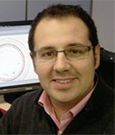
FISABIO Sequencing and Bioinformatics
Spain

Center of Astrobiology (CSIC/INTA)
Spain

University of Tübingen
Germany
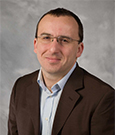
Georgia Institute of Technology
USA

IRD-UMMISCO; INSERM-NutriOmique
France
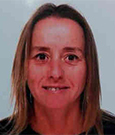
Hospital Can Misses
Spain

French National Institute for Agricultural Research (INRA)
France

FISABIO Sequencing and Bioinformatics
Spain
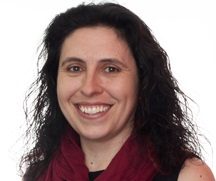
EMBL-EBI
UK
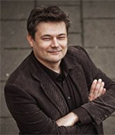
University of Zagreb
Croatia

Pontificia Universidad Católica de Chile
Chile
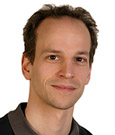
EMBL Heidelberg
Germany
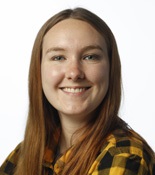
EMBL Heidelberg
Germany

EMBL Heidelberg
Germany

University of Innsbruck
Austria
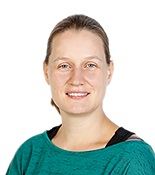
EMBL Heidelberg
Germany

EMBL Heidelberg
Germany

EMBL Heidelberg
Germany

EMBL Heidelberg
Germany
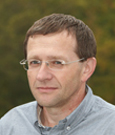
EMBL Heidelberg
Germany

FISABIO Sequencing and Bioinformatics
Spain

Center of Astrobiology (CSIC/INTA)
Spain
Got something to say? Tweet it! #EMBOMetaG
| Time | Speaker | Location |
|---|---|---|
| 16:00 – 17:00 | Overview of pre-course work, introduction to course content on EMBL eCampus | Virtual |
| Time (Europe/Berlin) | Speaker | Location |
|---|---|---|
| 09:00 – 09:15 | Welcome and EMBL overview Elisabeth Zielonka – EMBL Heidelberg, Germany | Courtyard Room A & B |
| 09:15 – 09:30 | Introduction to Training Lab and House notes EMBL Heidelberg, Germany | Courtyard Room A & B |
| 09:30 – 09:45 | Welcome and Introductions José Eduardo González Pastor – Center of Astrobiology (CSIC/INTA), Spain | Courtyard Room A & B |
| 09:45 – 10:45 | Flash talks participants Elisabeth Zielonka – EMBL Heidelberg, Germany | Courtyard Room A & B |
| 10:45 – 11:00 | BREAK | |
| 11:00 – 12:00 | Metagenomics: Concepts, historical milestones and next advance José Eduardo González Pastor – Center of Astrobiology (CSIC/INTA), Spain | Courtyard Room A & B |
| 12:00 – 13:00 | LUNCH | EMBL Canteen |
| 13:00 – 14:00 | Metagenomics library preparation for NGS Vladimir Benes – EMBL Heidelberg, Germany | Courtyard Room A & B |
| 14:00 – 15:00 | Group Activity Challenges and Expectations | Courtyard Room A & B |
| 15:00 – 16:00 | The impact of Metagenomics, on genes and genomes discovery Gabrielle Potock i- Veronese – INRA-LISBP, France | Courtyard Room A & B |
| 16:00 – 16:30 | BREAK | |
| 16:30 – 17:30 | What brings a metagenomic approach in cardiometabolic and nutrition-related disorders? Eugeni Belda – IRD-UMMISCO; INSERM-NutriOmique, France | Courtyard Room A & B |
| 17:30 – 20:00 | Poster Session 1 and Pizza dinner | Helix A and Rooftop Lounge |
| Time (Europe/Berlin) | Speaker | Location |
|---|---|---|
| 09:00 – 09:15 | Quick overview of the day José Eduardo González Pastor – Center of Astrobiology (CSIC/INTA), Spain | Courtyard Room A & B |
| 09:15 – 10:30 | PRACTICAL 1 Extraction of metagenomic DNA in groups from soil samples José Eduardo González Pastor – Center of Astrobiology (CSIC/INTA), Spain Arantxa Lopez – Hospital Can Misses, Spain | Training Lab A & B |
| 10:30 – 11:00 | BREAK | |
| 11:00 – 12:30 | PRACTICAL 2 Quality control of DNA samples and Nanopore 16S PCR set up Daphne Welter – EMBL Heidelberg, Germany Laura Villacorta – EMBL Heidelberg, Germany | Training Lab A & B |
| 12:30 – 13:30 | LUNCH | EMBL Canteen |
| 13:30 – 14:30 | Discussion of metagenomic DNA Extraction Results José Eduardo González Pastor – Center of Astrobiology (CSIC/INTA), Spain Arantxa Lopez – Hospital Can Misses, Spain | Courtyard Room A & B |
| 14:30 – 15:30 | Metagenomics and other culture-independent tools to study virus communities Josefa Antón Botella – University of Alicante, Spain | Courtyard Room A & B |
| 15:30 – 16:45 | PRACTICAL 2 Nanopore: 16S PCR cleanup, finishing library preparation and starting sequencing run, followed by Genomics Core Facility Tour Daphne Welter – EMBL Heidelberg, Germany Laura Villacorta – EMBL Heidelberg, Germany | Training Lab A & B |
| 16:45 – 17:15 | BREAK | |
| 17:15 – 19:15 | PRACTICAL 2 Nanopore: 16S analysis/ DNA cleanup and Sequencing start Daphne Welter – EMBL Heidelberg, Germany Laura Villacorta – EMBL Heidelberg, Germany | Training Lab A & B GeneCore Facility |
| 19:15 – 19:30 | Group activity: Description of Case Studies Elisabeth Zielonka – EMBL Heidelberg, Germany José Eduardo González Pastor – Center of Astrobiology (CSIC/INTA), Spain Giuseppe D’Auria – FISABIO, Spain | Courtyard Room A & B |
| 19:40 | DINNER | Hotel ISG |
| Time (Europe/Berlin) | Speaker | Location |
|---|---|---|
| 09:00 – 09:15 | Quick overview of the day José Eduardo González Pastor – Center of Astrobiology (CSIC/INTA), Spain | Courtyard Room A & B |
| 09:15 – 09:45 | PRACTICAL 1 Test digestion conditions for metagenomic DNA and preparation of agarose gels José Eduardo González Pastor – Center of Astrobiology (CSIC/INTA), Spain Arantxa Lopez – Hospital Can Misses, Spain | Training Lab A & B |
| 09:45 – 11:00 | PRACTICAL 3 Practical introduction: Single cells genomics in droplets Tobias Wenzel – EMBL Heidelberg, Germany | Training Lab A & B |
| 11:00 – 11:15 | BREAK | |
| 11:15 – 12:30 | PRACTICAL 1 Digestion of metagenomic DNA for cloning in the libraries (once that digestion conditions are determined) José Eduardo González Pastor – Center of Astrobiology (CSIC/INTA), Spain Arantxa Lopez – Hospital Can Misses, Spain | Training Lab A & B |
| 12:30 – 13:30 | LUNCH | EMBL Canteen |
| 13:30 – 14:30 | PRACTICAL 1 Purification from gel of the digested metagenomic DNA José Eduardo González Pastor – Center of Astrobiology (CSIC/INTA), Spain Arantxa Lopez – Hospital Can Misses, Spain | Training Lab A & B |
| 14:30 – 15:00 | BREAK | |
| 15:00 – 17:00 | PRACTICAL 1 Cloning of the metagenomic DNA + overnight ligation Eduardo González Pastor – Center of Astrobiology (CSIC/INTA), Spain Arantxa Lopez – Hospital Can Misses, Spain | Training Lab A & B |
| 17:00 – 19:30 | PRACTICAL 3 Practical (single cell microbial genomics): Droplet generation for single cell genomics and PCR set-up Tobias Wenzel – EMBL Heidelberg, Germany | Training Lab A & B |
| 19:30 – 20:30 | DINNER | Hotel ISG |
| Time (Europe/Berlin) | Speaker | Location |
|---|---|---|
| 09:00 – 09:15 | Quick overview of the day José Eduardo González Pastor – Center of Astrobiology (CSIC/INTA), Spain | Courtyard Room A & B |
| 09:15 – 11:00 | PRACTICAL 1 Transformation in E. coli of the library José Eduardo González Pastor – Center of Astrobiology (CSIC/INTA), Spain Arantxa Lopez – Hospital Can Misses, Spain | Training Lab A & B |
| 11:00 – 12:00 | Methodological discussion of practical session 1: Metagenomics experimental design: Common shortcoming and pitfalls José Eduardo González Pastor – Center of Astrobiology (CSIC/INTA), Spain | Courtyard Room A & B |
| 12:00 – 13:00 | LUNCH | EMBL Canteen |
| 13:00 – 14:30 | PRACTICAL 4 Solving problems and questions: Introduction to Linux and R based on pre-recorded lecture 1 and 2 Giuseppe D’Auria – FISABIO, Spain | Training Lab A & B |
| 14:30 – 15:30 | Metabolomic profiling of microbial communities Mariana Reyes Prieto – FISABIO, Spain | Courtyard Room A & B |
| 15:30 – 16:00 | BREAK | |
| 16:00 – 17:00 | Pacific Bioscience (PacBio) sequencing for metagenomics Vladimir Benes – EMBL Heidelberg, Germany | Courtyard Room A & B |
| 18:15 Bus leaves at 17:45 | Free evening with tour of Heidelberg |
| Time (Europe/Berlin) | Speaker | Location |
|---|---|---|
| 09:00 – 09:15 | Quick overview of the day Giuseppe D’Auria – FISABIO, Spain | Courtyard Room A & B |
| 09:15 – 10:00 | PRACTICAL 1 Analysis of some colonies from the metagenomic libraries -Interpretation of results José Eduardo González Pastor – Center of Astrobiology (CSIC/INTA), Spain Arantxa Lopez – Hospital Can Misses, Spain | Training Lab A & B |
| 10:00 – 10:30 | BREAK | |
| 10:30 – 11:15 | Metatranscriptomics applied to the study microbial communities José Eduardo González Pastor – Center of Astrobiology (CSIC/INTA), Spain | Courtyard Room A & B |
| 11:15 – 12:00 | Case studies | Courtyard Room A & B |
| 12:00 – 13:30 | LUNCH | EMBL Canteen |
| 13:30 – 14:30 | Functional and taxonomic analysis with Mgnify Lorna Richardson – EMBL-EBI, Hinxton, UK | Courtyard Room A & B |
| 14:30 – 16:30 | PRACTICAL 5 Functional and taxonomic analysis with Mgnify Grisel Alejandra Escobar Zepeda – EMBL-EBI, Hinxton, UK Lorna Richardson – EMBL-EBI, Hinxton, UK | Computer Training Lab |
| 16:30- 19:30 | PRACTICAL 3 Visualization of droplets and single cell analysis with flexible coffee break Tobias Wenzel – EMBL Heidelberg, Germany | Training Lab A & B |
| 19:30 – 22:00 | BBQ DINNER | Hotel ISG |
| Time (Europe/Berlin) | Speaker | Location |
|---|---|---|
| 09:00 – 09:15 | Quick overview of the day Giuseppe D’Auria – FISABIO, Spain | Courtyard Room A & B |
| 09:15 – 11:00 | Introduction to 16S rDNA profiling (Illumina/PacBio) Giuseppe D’Auria – FISABIO, Spain | Computer Training Lab |
| 11:00 – 11:15 | BREAK | |
| 11:15 – 12:15 | PRACTICAL 6 Practical to 16S rDNA profiling (Illumina/PacBio) Giuseppe D’Auria – FISABIO, Spain | Computer Training Lab |
| 12:15 – 13:15 | LUNCH | EMBL Canteen |
| 13:15 – 14:15 | PRACTICAL 6 Practice to 16S rDNA profiling (Illumina/PacBio) Giuseppe D’Auria – FISABIO, Spain | Computer Training Lab |
| 14:15 – 16:00 | PRACTICAL 7 The microbial species definition and its challenges. The MiGA web-server for species identification: the genome-equivalent of RDP/Silva SSU web-servers Kostas Konstantinidis – Georgia Institute of Technology, USA Luis-Miguel Rodriguez-R- University of Innsbruck, Austria | Computer Training Lab |
| 16:00 – 16:30 | BREAK | |
| 16:30 – 18:30 | PRACTICAL 8 Analysis of 100s of metagenomes shows that bacterial species exist Tools for specialized analyses of metagenomes Kostas Konstantinidis – Georgia Institute of Technology, USA Luis-Miguel Rodriguez-R University of Innsbruck, Austria | Computer Training Lab |
| 18:30 – 20:00 | Poster session 2 and dinner | Helix A and Rooftop Lounge |
| Time (Europe/Berlin) | Speaker | Location |
|---|---|---|
| 09:00 – 09:15 | Quick overview of the day Kristian Vlahovicek – University of Zagreb, Croatia | Courtyard Room A & B |
| 09:15 – 11:15 | PRACTICAL 9 Metagenomic assembly, ORF finding, functional annotation Giuseppe D’Auria – FISABIO, Spain | Computer Training Lab |
| 11:15 – 11:30 | BREAK | |
| 11:30 – 12:30 | Analysis Tools Overview: INCA, MILC and MELP Kristian Vlahovicek – University of Zagreb, Croatia | Computer Training Lab |
| 12:30 – 13:30 | LUNCH | EMBL Canteen |
| 13:30 – 15:30 | PRACTICAL 10 INCA Kristian Vlahovicek – University of Zagreb, Croatia | Computer Training Lab |
| 15:30-16:00 | BREAK | |
| 16:00 – 18:00 | Student presentation preparation time: Case Studies All trainers and speakers | Courtyard Room A & B |
| 19:00 | DINNER | Downtown |
| Time (Europe/Berlin) | Speaker | Location |
|---|---|---|
| 09:00 – 09:15 | Quick overview of the day Giuseppe D’Auria – FISABIO, Spain | Courtyard Room A & B |
| 09:15 – 10:15 | Nanopore 16S sequencing results EPI2ME Laura Villacorta – EMBL Heidelberg, Germany | Courtyard Room A & B |
| 10:15- 10:45 | BREAK | |
| 10:45 – 12:00 | PRACTICAL 11 MEGAN Daniel Huson – University of Tübingen, Germany | Computer Training Lab |
| 12:00 – 13:00 | LUNCH | EMBL Canteen |
| 13:00 – 14:00 | PRACTICAL 11 MEGAN Daniel Huson – University of Tübingen, Germany | Computer Training Lab |
| 14:00 – 16:30 | Group activity and presentations: Case Studies | Courtyard Room A & B |
| 16:30 – 16:45 | BREAK | |
| 16:45 – 17:15 | Wrap-up and conclusions | Courtyard Room A & B |
| 18:00 | DINNER | Hotel ISG |
The course is limited to 20 participants. For selection purposes, please note that your application will not be considered without a letter of motivation.
Registration fees include admission, course materials, COVID-19 safety measures, meals and coffee breaks. This EMBO course includes accommodation and transportation to and from the ISG Hotel to the venue.
| Academia | €500 |
| PhD Student | €500 |
| Industry | €1000 |
NO visa support letters will be issued until payment of the registration fee is confirmed.
The registration fee should be paid only after acceptance to the course. The results will be announced approximately 2-3 weeks after the application deadline.
After you have logged in and successfully registered, you will receive an email asking you to submit your motivation letter. Click on the link provided and enter your motivation letter in the text box provided. Alternatively you can submit your motivation letter by clicking on the link on the confirmation page directly after registering.
Instructions
Please note:
For detailed instructions, please watch our video on how to submit a course motivation letter.
For further information about registration and motivation letter submission please refer to the FAQ page.
Limited financial assistance is provided by the EMBL Advanced Training Centre Corporate Partnership Programme and EMBO in the form of both registration fee waivers and travel grants. Availability is limited to participants attending on-site EMBL Courses and virtual or on-site EMBO Practical Courses in Heidelberg, and will be indicated during the motivation letter submission process.
Your place in the course is only confirmed by paying the registration fee, which is mandatory even when receiving a fee waiver.
The fee waiver will cover the registration sum that you have paid to attend the course.
The travel grant will cover the cost of travel (airfare, train, bus, taxi, accommodation, visa, and/or registration fees*) and is provided up to specified caps which are normally as follows:
– up to €400 for participants travelling to an EMBL Course within Europe.
– up to €1000 for participants travelling to an EMBL Course from outside Europe.
– up to €500 for any participant travelling to an EMBO Practical Course.
– up to €1000 for any participant working in Chile, India, Singapore or Taiwan travelling to an EMBO Practical Course.
– up to €700 for any participant working in Croatia, Czech Republic, Estonia, Greece, Hungary, Italy, Lithuania, Luxembourg, Poland, Slovenia, and Turkey travelling to an EMBO Practical Course.
*Registration fees are only covered for EMBO Practical Courses
The organisers may reduce the grant cap to accommodate more participants. Recipients will be notified of their travel cap amount when they are informed of the outcome of their application. Original receipts must be provided with your signature for all costs incurred within two months of completion of travel. Scanned copies cannot be accepted.
For EMBO Practical Course participants with children, there is the possibility to apply for a childcare grant to offset child care costs incurred by participants or speakers when participating at a course. Eligible costs include fees for a babysitter or child-care facility, travel costs for a caregiver, or travel costs for taking the child to the meeting etc. Please note that priority will be given to early-stage researchers. A maximum amount of €500 can be awarded per participant applying for an EMBO childcare grant.
Applies to selected courses only. Availability will be indicated during the motivation letter submission process.
This grant covers costs related to your attendance at the course (registration, travel and accommodation costs). The grant is restricted to PhD students and postdocs who conduct basic biomedical research.
Whether you are eligible to apply for a travel grant, depends on when you received your university entrance qualification (e.g. Abitur, A-Levels, High School Diploma, Final State Examination):
– for PhD and MD students, as well as graduates, the university entrance qualification must not have been obtained more than 11 years ago at the time of the envisaged course
– for postdocs, the university entrance qualification must not have been obtained more than 13 years ago at the time of the envisaged course
You may apply for financial assistance when submitting your motivation letter for courses. In your application, you will be asked to answer questions regarding why your lab cannot fund your attendance and how your attendance will make a difference to your career. Application for financial support will not affect the outcome of your registration application.
For the Boehringer Ingelheim Fonds Travel Grant, there is a pre-application question during the motivation letter submission process, and if selected you will be requested to complete a standard form and documentation consisting of your travel expense estimation.
The scientific organisers will select the recipients of all financial assistance during the motivation letter selection process. Results will be announced approximately 6-8 weeks before the event start date, however for some events this may be delayed. Selection results do not impact your admission to the course. Selection is based on scientific merit, your current work or study location, the reasons for needing financial support, and the impact this event will have on your career.
Costs will be reimbursed after the meeting only once a reimbursement form and original receipts (from travel costs) have been received.
See our list of external funding opportunities and for further information about financial assistance please refer to the FAQ page.
Accommodation has been pre-booked for you at the ISG Hotel for the default dates of 16 April to 24 April 2023 (9 nights). Please note that the course registration fee includes coverage of accommodation costs in twin rooms, including breakfasts, for your stay at the ISG. In case you would like to have a single room, please let us know and please note that you will be required to pay an additional cost of 31€ per night. This should be paid by you directly to the ISG during your stay. Any additional nights need to be booked and paid for by you. We recommend that all course participants stay at the ISG Hotel which is the dedicated hotel for the course.
Shuttle buses will go from the ISG Hotel to EMBL and back, mornings and evenings. Please see the schedule here.
Address: EMBL Heidelberg, Meyerhofstraße 1, 69117 Heidelberg, Germany
For further information on getting to EMBL Heidelberg visit our Travel Information page.
For enquiries about accommodation and local transportation please refer to the FAQ page.
Please find additional information including FAQs, terms and conditions, COVID-19 safety policy and travelling to EMBL on our Information for Participants page.
COVID-19 information for on-site events at EMBL Heidelberg can be found in our COVID-19 FAQs.
Event partners:
Event sponsors:
Event supporters:
Sponsorship opportunities
We offer a variety of event sponsoring possibilities, with the flexibility to select a set sponsorship package or combine individual sponsorship options to suit your event budget. Discounts are available for companies sponsoring multiple events at EMBL Heidelberg. View other events, or contact sponsorship@embl.de for further information.
If you are interested in becoming a media partner of this event, please visit our media partnerships webpage.
EMBL wishes to warn sponsors of EMBL conferences and courses of fraudulent schemes purporting to offer sponsorship opportunities on behalf of EMBL or affiliated with EMBL officials. One current scam campaign of which we are aware is conducted using the name ‘Judy Eastman’ (judy@gopcontact.a2hosted.com) and entails approaches to sponsors offering sponsorship opportunities on EMBL’s behalf. Please be kindly advised that all relevant communication regarding sponsorship of EMBL conferences, symposia and courses is handled by EMBL directly and is sent from an official EMBL account. EMBL does not work with any external providers on sponsorship acquisition.
Please also note that:
Suspicious communications purportedly from, for or on behalf of EMBL should be reported to EMBL at the following email address sponsorship@embl.de.
Want to let others know you’re attending this event? Take a look at our shareable media and feel free to use them in your social media channels or presentations.

Date: 17 - 24 Apr 2023
Location: EMBL Heidelberg
Venue: EMBL Advanced Training Centre
Deadline(s):
Application: Closed
Organisers:
Contact: Diah Yulianti